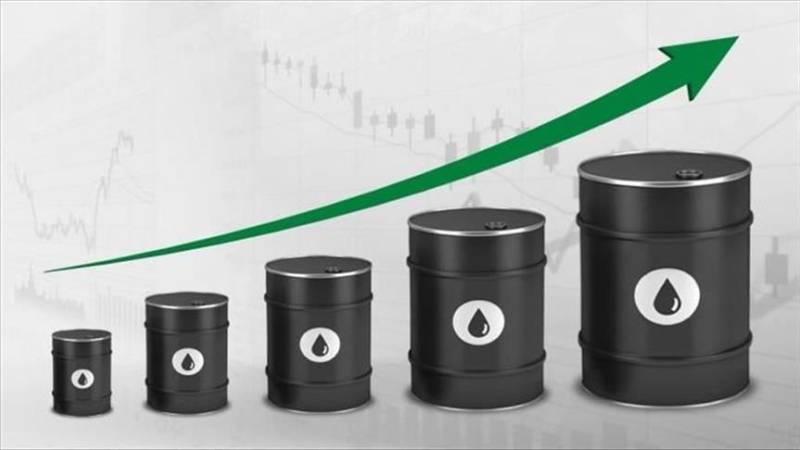Brent crude oil prices climbed on Friday after OPEC+ reassured the markets that it will strictly cut its total oil production by the determined level of 7.7 million barrels per day.
International benchmark Brent crude was trading at $45.01 per barrel at 0605GMT for a 0.2% increase after closing Thursday at $44.90 a barrel.
American benchmark West Texas Intermediate was at $42.84 per barrel at the same time, up 0.05% after ending the previous session at $42.82 a barrel.
The prices increased as OPEC+ vows to comply with determined levels oil cuts for decreasing the available global supply to support the prices in the global oil market.
The Organization of Petroleum Exporting Countries (OPEC) and non-OPEC oil-producing nations on Wednesday called for vigilance by all participating countries underscoring the fragility of the market and significant uncertainties, particularly associated with oil demand.
OPEC oil producers and allies, like Russia, a grouping dubbed OPEC+, met on Wednesday to review compliance with oil cuts meant to support oil prices during the coronavirus pandemic.
Pointing to signs of gradually improving market conditions and the lessening of the gap between global oil demand and supply, the group warned against a slower pace of recovery than expected with growing risks of a prolonged wave of COVID-19.
OPEC and its allies forced oil nations pumping over production targets to cut further in August-September amid concerns of a sluggish recovery in oil demand, saying full conformity was vital for the ongoing rebalancing efforts and to help deliver long-term oil market stability.
OPEC+ agreed on June 15 to lower their current crude oil production cut level to 7.7 million barrels per day (bpd) starting from August, from the existing 9.7 million bpd.
The Joint Ministerial Monitoring Committee (JMMC), which closely watches how much crude oil each OPEC+ member produces, will hold its next meeting on Sept. 17.
Increasing tension between US and Iran
The upward trend in prices was supported by the escalating tension between the US and Iran after US President Donald Trump said he intends to "snap back" international sanctions on Iran lifted as part of a 2015 nuclear deal.
The US president decided in 2018 to unilaterally exit Washington from the multilateral nuclear accord, which was largely led by his predecessor, Barack Obama. In so doing, Trump ignored the objections from all of the pact's other participants who question the US's standing in invoking a snapback, as it is no longer a party to the accord.
To further add to concerns over diminishing demand, US crude oil stocks fell less than market forecasts for the week ending Aug. 14.
According to data released by the country's Energy Information Administration (EIA) on Thursday, US commercial crude oil inventories fell by 1.6 million barrels, or 0.3%, to 512.5 million barrels for the week ending Aug. 14, relative to the market expectation of a decrease of 2.7 million barrels.
However, the number of Americans who filed for unemployment benefit last week increased and topped 1 million after recording the lowest figure the previous week since the coronavirus pandemic began, according to the US Labor Department.
A total of 1,106,000, jobless claims were filed, representing a week-on-week increase of 135,000.






